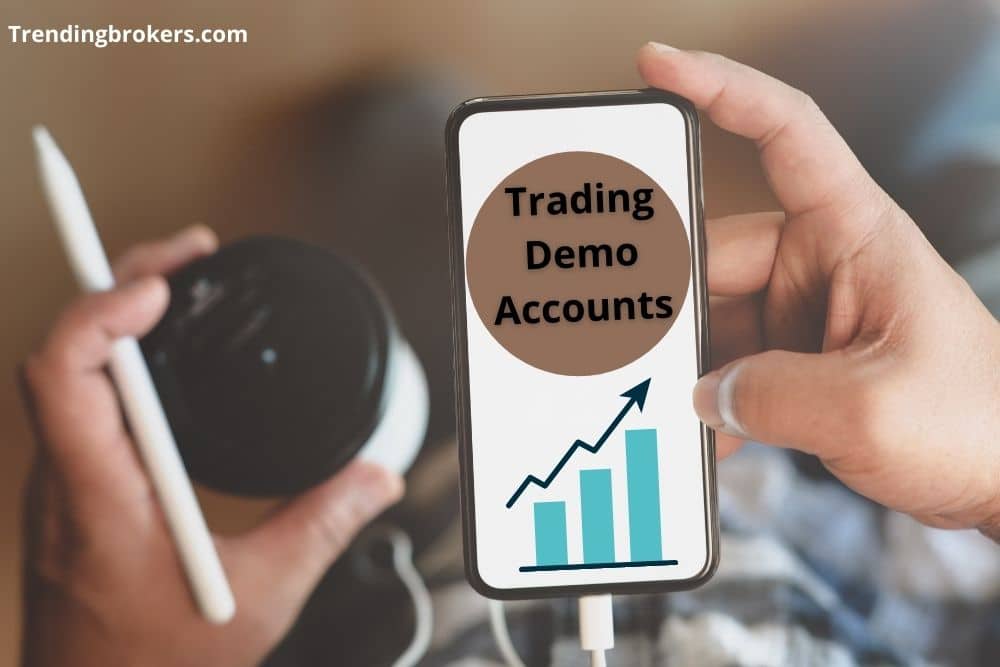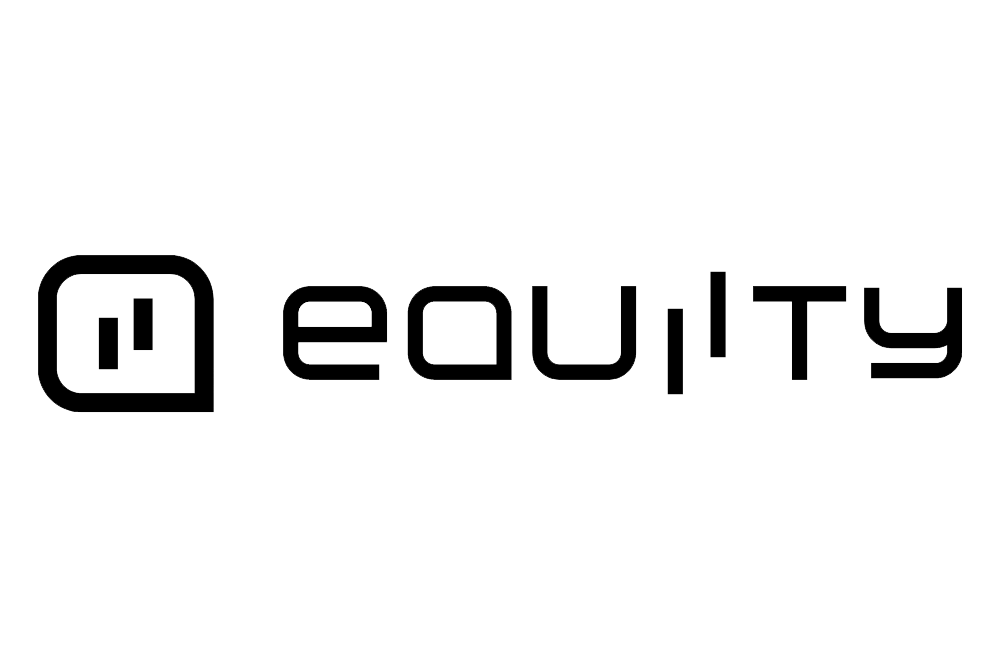Trading in the market comes with equal risk and reward. So, it becomes even more crucial for novice traders to understand the ins and outs of trading before putting their hard-earned money on the line. Here, demo accounts play a major role. They can be defined as practice account that allows you to trade with virtual money, so you can learn how to trade without any financial risk.
In simple words, it’s like a flight simulator for most traders, where they can test out their new strategies and get a feel for the market before they start real-world trading.
But it’s not just for beginners; even experienced traders can benefit from a demo trading account. Maybe you want to test out a new strategy, or maybe you’re thinking of switching to a new broker. A demo account allows you to do all of this without risking a penny.
In this blog post, we’ll dive deeper into what a demo trading account is, why it’s useful, and how you can get started with one. So buckle up, and get ready to take your trading skills to the next level.
What Is Demo Trading Account?
A demo account is a simulated trading account that allows traders to practice trading without using real money. It is an ideal way for beginners to learn about the market and practice their strategies in a risk-free environment.
Demo trading accounts can be found on many online brokerages and are usually free to use. However, while many brokers keep it completely free to use, others put time restrictions, like a free trial period of upto 7 or 14 days.
One of the main advantages of using a demo trading account is that it allows traders to get a feel for the market and the trading software before committing real funds.
This can be particularly useful for new traders who are still learning the ropes and need time to develop their skills and confidence. Additionally, demo trading accounts can be used to test out new trading strategies or to fine-tune existing ones, without the high risk of losing money rapidly.
What Makes Demo Trading Accounts Important?
The demo accounts play an immense role in every trader’s life. Every trader must have used it at any point in his/her career. The importance of this tool can be gauged by the fact that it provides an opportunity to learn and practice trading strategies, test out new markets, and gain confidence before trading with real money.
Here’s a list of pointers explaining the importance of free demo trading accounts:
- Lowers the risk of losing money: Demo trading accounts allow traders to test out their strategies and become familiar with the platform without the high risk of losing real money.
- Provides a risk-free learning experience: Traders can use demo accounts to try out different trading styles, tools, and markets, gaining experience and knowledge along the way.
- Builds trader confidence: With a demo account, traders can build their confidence in their trading skills before risking real money in the market.
- Helps to test and refine trading strategies: Demo accounts provide a platform to test trading strategies and see how they perform in real market conditions, without risking actual money.
- Helps to identify strengths and weaknesses: By using a demo trading account, traders can identify areas where they excel and areas that need improvement, helping them to refine their trading skills.
Benefits of Demo Trading Accounts
- Risk-free trading: Demo trading accounts allow traders to experience the market without risking real money, making it a safe and low-pressure way to practice.
- Building trading skills: With a demo trading account, traders can familiarize themselves with the trading software and learn how to execute trades, monitor market trends, and manage risk.
- Experimenting with trading strategies: Demo trading accounts offer traders the ability to try out different trading strategies and techniques without the risk of losing real money.
- Learning from mistakes: Making mistakes is a natural part of the learning process, and demo trading accounts allow traders to make mistakes and learn from them without the financial consequences.
- Analyzing trading performance: By using a demo trading account, traders can track their trading performance over time, identify areas for improvement, and refine their trading plan & strategy.
- Access to real market data: Demo trading accounts provide traders with access to real market data, conditions & analysis, allowing them to gain a realistic understanding of how the market behaves and how to react to different situations.
Difference Between Demo and Live Trading
Both demo trading and live trading accounts have their own unique characteristics, and traders need to be aware of these differences when making trading decisions.
While demo trading can be one of the useful trading tools for practising and testing strategies, live trading requires a different mindset and approach to managing the risks and challenges of trading with real capital.
Here’s a list of key differences between a free demo account and real trading accounts:
Risk
One of the main differences between demo and live trading is the level of risk involved. Demo trading involves using a simulated account with virtual funds, while live trading involves using real money. This means that the potential for profit and loss is much higher in live trading than in demo trading.
Emotions
Demo trading is often seen as a less emotional experience than live trading. This is because the trader does not have to worry about losing real money, and therefore can make decisions without the same level of emotional attachment. In live trading, emotions such as fear and greed can have a significant impact on trading decisions.
Execution
Another difference between demo and live trading is the execution of trades. In demo trading, trades are executed immediately, without the potential for slippage, interest and dividend adjustments. In live trading, trades may not always be executed at the desired price, due to market volatility or other factors.
Market Conditions
Demo trading accounts usually have access to the same market data as real trading account, but they do not always reflect the same market conditions. In live trading, market conditions can change quickly, and traders need to be able to adapt to these changes.
Time
Finally, demo trading is often a time-limited experience, while live trading is an ongoing process. Demo trading accounts may only be available for a limited time or may have restrictions on the number of trades that can be executed. In live trading, traders need to be able to manage their time effectively to ensure they are making the most of market opportunities.
Psychological Factors
Another key difference between demo and live trading is the psychological factors involved. Demo trading does not involve the same emotional attachment as live trading, where traders may become more fearful, greedy or anxious, which can lead to impulsive or irrational decision-making.
In live trading, traders need to be able to manage their emotions and remain disciplined to ensure they are making rational trading decisions.
Market Liquidity
The liquidity of a market can also impact demo and live trading. In demo trading, there may be an illusion of liquidity as the trades are executed immediately. However, in live trading, traders need to be aware of the actual liquidity of the market and may experience delays in executing trades or slippage.
Technical Limitations
Demo trading accounts may not always reflect the same technical limitations as live account. For example, live accounts may have restrictions on the number of trades that can be executed or may have different margin requirements. Traders need to be aware of these technical limitations and adjust their trading strategies accordingly.
Trading Costs
Another difference between demo and live trading is the trading costs involved. In demo trading, there are no actual trading costs as the trades are executed in a simulated environment. However, in live trading, traders need to be aware of the actual trading costs, such as spreads, commissions, and other fees, which can have an impact on their profitability.
Getting Started with Demo Trading Accounts
As demo trading accounts are a great way to learn how to trade financial markets without risking real money, one should have a full understanding of the process before start trading.
Here are some steps to get started with demo trading:
Finding a broker
The first step to getting started is to find online trading platforms offer investors a free demo account option. Capitalix is a great option for traders looking to start demo trading. They offer a range of demo accounts that allow traders to practice with virtual funds.
Setting up the account
Once you have found a broker that offers demo accounts, the next step is to set up your account. This usually involves filling out an online application and verifying your identity. Once your account is set up, you can log in and start investing or trading in a simulated environment.
Tips For Making The Most Out Of Demo Trading
To make the most out of demo trading, there are a few tips to keep in mind. Firstly, treat demo trading as seriously as you would live trading. This means setting realistic trading goals, managing risk, and keeping a trading journal to track your progress.
Secondly, try out different strategies to see what works best for you. Experiment with different technical indicators, time frames, and instruments to see what you are most comfortable with.
Finally, keep track of your performance and analyze your trades to identify areas for improvement. This will help you refine your trading skills and prepare you for live trading.
Pros and Cons of Demo Account
Pros
- Practice without risking real money
- Gain experience with many trading platforms and instruments
- Test strategies in a risk-free environment
- Accessible for all major markets, including Forex, Commodities, Crypto & Stock market
- Best for understanding Copy trading feature
- Access to widely used trading tools like technical indicators
- Learn from mistakes without financial consequences
- Accessible through MT4, MT5 & desktop platform
- Exclusive forex trading experience
Cons
- Lack of emotional attachment and pressure may not accurately reflect live trading
- Traders may not take demo trading as seriously as live trading
- No actual trading costs may not prepare traders for live trading costs.
Final Words
In conclusion, a demo trading account offers a valuable opportunity for beginners to learn the ropes of trading in financial markets without incurring any actual financial risk.
By using a demo account as a trading simulator, traders can practice strategies, learn how to use trading platform and gain experience in a risk-free environment.
However, it’s important to remember that demo trading has its limitations and may not fully reflect the emotional and psychological factors of live trading. Traders should also ensure they take demo trading seriously and set realistic trading goals.
Overall, demo trading can be a great way for beginners to gain experience and confidence before entering the world of live trading.
As a beginner, it’s recommended to start with a reputable broker that offers demo accounts, such as Capitalix, and follow the tips and strategies discussed in this guide to make the most out of demo trading.
Risk Warning:
CFD & Forex trading involves high risk due to leverage, which can result in rapid and substantial losses. Nearly 80% of retail investor accounts suffer losses rapidly due to leverage when trading CFDs. Therefore, it is crucial to assess your comprehension of CFDs and your financial capability to afford to take the high risk
FAQs
Can I Withdraw From Demo Account?
No, you cannot withdraw from a demo account as it is a practice account with virtual/fake money only.
Is A Demo Account Real Money?
No, a demo account is not real money. It is a practice trading account with virtual money provided by the broker for traders to practice without risking any real money.
What Is The Benefit Of Trading Demo Account?
The benefit of trading demo account is that traders can practice trading strategies, learn how to use trading platform and gain experience in a risk-free environment without incurring any financial risk.
Is Demo Account Good?
Yes, a demo account is good for beginners and experienced traders alike to practice and improve their trading skills without risking any real money.
How To Open A Demo Account?
To open a demo account, you typically need to follow these steps:
- Choose a broker or trading platform that offers demo accounts.
- Visit their website and look for the option to open a demo account.
- Fill out the registration form with your personal information, such as name and email address.
- Choose the type of account you want to open, such as a demo account for forex or stocks.
- Follow the instructions to download and install any necessary software or apps.
- Log in to your demo account using the login credentials provided by the broker or platform.
- Start practicing your trading strategies with virtual funds in a simulated trading environment.
What Is The Full Form Of Demo?
The full form of the demo is a “demonstration”.
Which Broker Can I Use For Demo Account?
There are many brokers that offer demo accounts, but it’s important to choose a reputable broker that is regulated and offers a range of trading instruments and platforms. Capitalix is a popular and reliable broker that offers demo accounts.
Can We Transfer Money From Demo To Real Account?
No, you cannot transfer money from a demo account to a real account as the funds in a demo account are virtual and do not represent any real monetary value.
How Do I Login To My Demo Account?
To log in to your demo account, you will need to go to the broker’s website and enter your username and password. If you’re having trouble logging in, contact the broker’s customer support for assistance.
What Is A Forex Demo Account?
A forex trading account is a practice account that allows traders to learn how to trade in the forex market without risking any real money and with full control over losses.
Is Trading Demo Accounts Free?
Yes, many brokers offer free demo accounts for traders to practice trading without risking any real money.
How Do I Get A Forex Demo Account Free?
To get a free Forex demo account, simply sign up with a reputable broker that offers demo accounts, such as Capitalix.
What Is The Best Demo Trading Account?
The best demo trading account depends on individual preferences and needs. However, Capitalix is a popular and reputable broker that offers a range of demo accounts for traders to practice and improve their skills.


